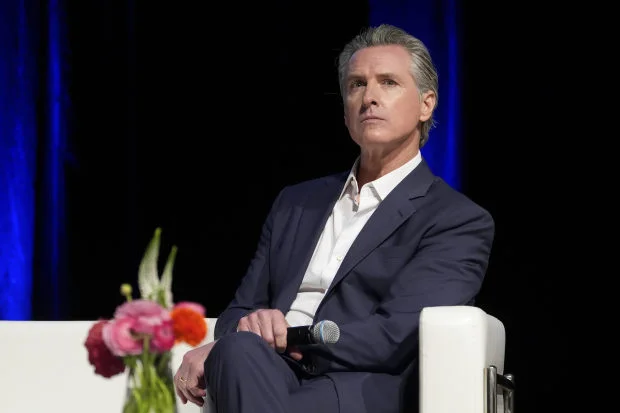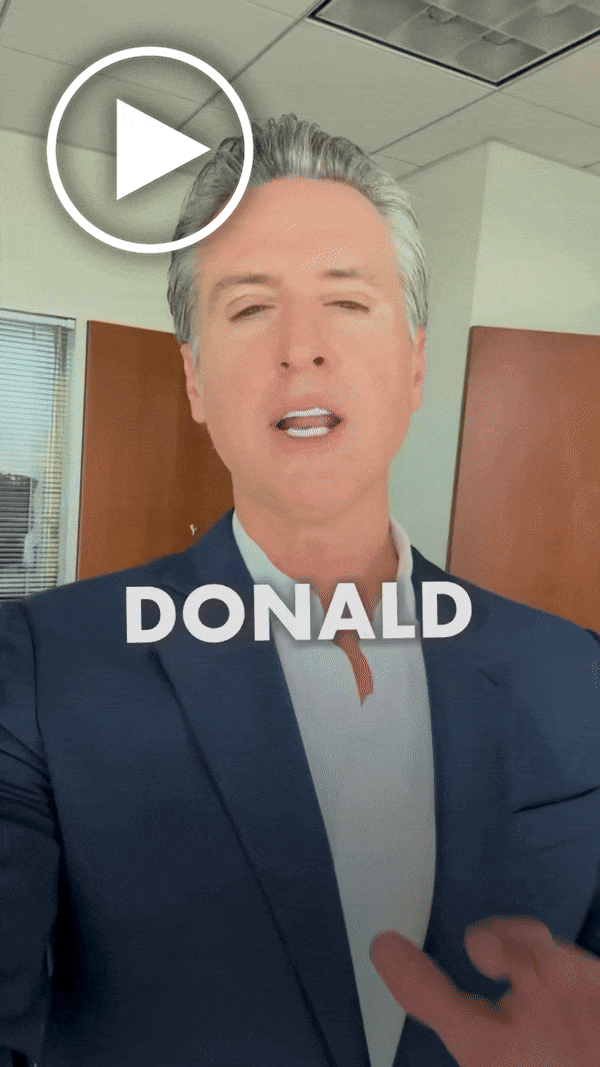
Governor Newsom Battles Trump’s Tariffs Amid Fears For California’s Economic Powerhouse
In a bold response to President Donald Trump’s sweeping new tariffs, California Governor Gavin Newsom has declared that the Golden State “will not sit idly by” as the trade war threatens its economic strength. Standing as the world’s fifth-largest economy with vast ties to international markets, California now finds itself caught in the crossfire of federal trade policies that Newsom says risk harming millions of workers, businesses, and consumers. The stakes are monumental—not just for California, but for the entire country’s economic trajectory.

Trump’s announcement threatened tariffs as high as 125% on imports from China—America’s third-largest trading partner—and levied a persistent 10% duty on many allied nations. While a recent partial rollback offers a 90-day reprieve for some, the uncertainty has sent shockwaves through markets. Newsom’s immediate reaction was forceful, vowing to launch trade missions, negotiate bilaterally, and press global partners to spare California-made goods from retaliation. Yet analysts question whether any of this can shield the state’s immense economy from damage.
Chris Thornberg, economist at Beacon Economics, noted the state’s constitutional limits: “According to the Constitution, the Feds have complete control over foreign relations... There is nothing Gavin can do to protect us from that.” Kenneth Rogoff from Harvard added that California could try to ease regulations or seek exemptions, but realistically, “his ability to bypass Trump’s tariffs is very limited.”
This raises troubling prospects for California’s key sectors such as agriculture, high-tech, and Hollywood—precisely the targets foreign governments might single out in retaliation. Indeed, Chinese media have hinted at hitting Hollywood exports, while EU officials are eyeing digital services if talks sour. These risks are magnified by California’s reliance on global supply chains and imports for manufacturing, from farm inputs to tech components. Inevitably, costs would rise—passed down to consumers—fueling inflation and possibly exacerbating recession fears recently flagged by major financial institutions like Goldman Sachs and JPMorgan Chase.
In response, Newsom is doubling down: instructing his administration to forge new partnerships abroad, reaffirming California’s commitment to “fair, open, and mutually beneficial” trade—whether or not the federal government agrees. “California is not Washington, D.C.,” Newsom said pointedly. Emphasizing the state’s economic might—$3.9 trillion GDP, top ranks in manufacturing, agriculture, AI, and venture capital—he seeks to reassure international allies that California remains a dependable partner amid Washington’s turbulence.

The governor’s plan involves identifying strategic collaborations to maintain cross-border supply chains, support impacted businesses, and preserve critical imports—like construction materials vital for fire recovery efforts. Notably, 40% of California’s nearly $500 billion in imports come from Mexico, Canada, and China, with counter-tariffs on $67 billion in exports potentially shaking foundations of the state’s economy. An analysis by Yale estimates Trump’s tariff plan could spike US inflation by 2.3% this year, hitting food and automotive prices hardest and costing families nearly $3,800 annually.
Despite economists’ doubts about any state-led economic insulation, Newsom’s aggressive posture has a clear political undertone. It positions him and fellow Democrats, like Illinois Gov. JB Pritzker, as defenders of consumer interests and stability in contrast to Trump’s volatile policies. As Democrats craft a narrative accusing Trump of “shooting the U.S. economy in the foot,” Newsom uses California’s global prominence to amplify his voice—and perhaps lay groundwork for future national ambitions.
This unfolding clash highlights the complex dance between federal authority and state initiative in a global economy. Can California’s assertiveness mitigate the tariff war’s fallout, or will millions still bear the brunt of federal trade disputes? The coming months may well reveal whether the Golden State’s golden touch can truly defy Washington’s hard line.
What do you think about California’s bold challenge to Trump’s tariffs? Will it help soften the blow or is it political theater? Share your thoughts and join the conversation below.
Related issues news
What is a global trade war?
A trade war is an economic conflict often resulting from extreme protectionism, in which states raise or implement tariffs or other trade barriers against each other as part of their commercial policies, in response to similar measures imposed by the opposing party.
What is Trump's trade war?
An economic conflict between China and the United States has been ongoing since January 2018, when U.S. President Donald Trump began setting tariffs and other trade barriers on China with the goal of forcing it to make changes to what the U.S. says are longstanding unfair trade practices and intellectual property theft ...